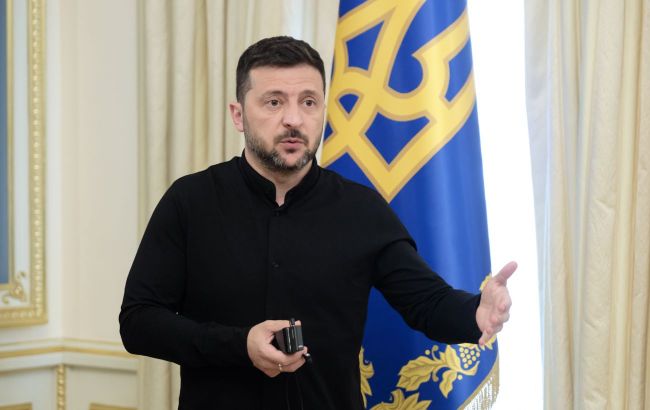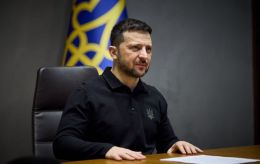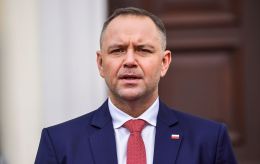Ukrainian delegation to visit US next week — Zelenskyy outlines agenda
 Ukrainian President Volodymyr Zelenskyy (Photo: RBC-Ukraine, Vitalii Nosach)
Ukrainian President Volodymyr Zelenskyy (Photo: RBC-Ukraine, Vitalii Nosach)
At the beginning of next week, a Ukrainian delegation led by Prime Minister Yulia Svyrydenko will travel to the United States. Among the main topics will be discussions on sanctions policy against the Russian Federation, Ukrainian President Volodymyr Zelenskyy states during a meeting with journalists on October 8.
"We are grateful to the US and President (Donald – Ed.) Trump. Cooperation with the US continues. The team led by Prime Minister Svyrydenko, together with the head of the Presidential Office (Andriy – Ed.) Yermak and my authorized representative on sanctions policy (Vladyslav – Ed.) Vlasiuk, will be in the US at the beginning of next week," Zelenskyy said.
According to him, the key topics include: air defense, energy, sanctions measures, and the negotiation track. The issue of frozen assets with the US will also be discussed.
He also emphasized that preparations are underway to continue the work of the Coalition of the Willing. Relevant actions, meetings, and results are planned for October and November.
"I think that the information from our Foreign Intelligence Service is important. There is currently no shared vision between America and Russia regarding the war. And America understands that Russia is lying. And I think this is important from the point of view of the future, our partners’ support for our state, and the track towards ending the war," the head of state added.
Possible US sanctions against Russia
It should be recalled that recently, Trump stated that the US is ready to impose "serious" sanctions against Russia — provided that NATO countries stop purchasing energy resources from the Russian Federation. The US president criticized Europe for "not tough enough sanctions" against Russia and for continuing to buy Russian oil.
European Commission President Ursula von der Leyen, for her part, said she proposes accelerating the gradual phase-out of fuel imports from Russia. Her statement came after a conversation with US President Donald Trump.
However, in reality, the EU is unlikely to be able to give up Russian oil and gas even by 2027. Previously, the bloc planned a complete phase-out by 2028 but was forced to speed up due to Trump’s demands. Any further acceleration is currently simply impossible.

